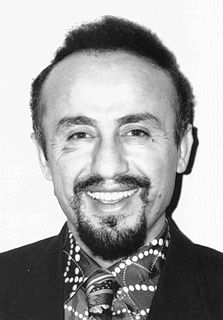| |||||||||||||||||||||||||||||
All 137 seats to the National Consultative Assembly | |||||||||||||||||||||||||||||
|---|---|---|---|---|---|---|---|---|---|---|---|---|---|---|---|---|---|---|---|---|---|---|---|---|---|---|---|---|---|
| |||||||||||||||||||||||||||||
| |||||||||||||||||||||||||||||
Parliamentary elections were held in Iran in 1947. The newly elected parliament was opened on 17 July. [4] The election was a three-way power struggle between Ahmad Qavam, Mohammad Reza Shah and pro-Britain conservative politicians. [5] :240

Iran, also called Persia, and officially the Islamic Republic of Iran, is a country in Western Asia. With over 81 million inhabitants, Iran is the world's 18th most populous country. Comprising a land area of 1,648,195 km2 (636,372 sq mi), it is the second largest country in the Middle East and the 17th largest in the world. Iran is bordered to the northwest by Armenia and the Republic of Azerbaijan, to the north by the Caspian Sea, to the northeast by Turkmenistan, to the east by Afghanistan and Pakistan, to the south by the Persian Gulf and the Gulf of Oman, and to the west by Turkey and Iraq. The country's central location in Eurasia and Western Asia, and its proximity to the Strait of Hormuz, give it geostrategic importance. Tehran is the country's capital and largest city, as well as its leading economic and cultural center.

Ahmad Qavam, also known as Qavam os-Saltaneh, was a politician who served as Prime Minister of Iran five times.

The United Kingdom (UK), officially the United Kingdom of Great Britain and Northern Ireland, and sometimes referred to as Britain, is a sovereign country located off the north-western coast of the European mainland. The United Kingdom includes the island of Great Britain, the north-eastern part of the island of Ireland, and many smaller islands. Northern Ireland is the only part of the United Kingdom that shares a land border with another sovereign state, the Republic of Ireland. Apart from this land border, the United Kingdom is surrounded by the Atlantic Ocean, with the North Sea to the east, the English Channel to the south and the Celtic Sea to the south-west, giving it the 12th-longest coastline in the world. The Irish Sea lies between Great Britain and Ireland. With an area of 242,500 square kilometres (93,600 sq mi), the United Kingdom is the 78th-largest sovereign state in the world. It is also the 22nd-most populous country, with an estimated 66.0 million inhabitants in 2017.
Contents
Prime Minister Qavam's control over electoral machinery was in many districts challenged by "Imperial Iranian Army officers, independent local magnets and pro-British provincial governors". [5] :240–241

The Islamic Republic of Iran Army, acronymed AJA, simply known as the Iranian Army or Artesh, is the "conventional military of Iran" and part of Armed Forces of the Islamic Republic of Iran. The army is tasked to protect the territorial integrity of the Iranian state from external and internal threats and to project power. Artesh has its own Joint Staff which coordinates its four separate service branches: Ground Forces, Air Force, Navy and the newly established Air Defense Force.
A public protest by shopkeepers, bazaaris and university students and headed by Mohammad Mosaddegh among other politicians was held to call for a free elections, however, despite Qavam's promise to hold a free election, it was "rigged" and his Democrat Party of Iran won the majority, including all 12 seats in Tehran. [5] :240–241

Mohammad Mosaddegh was the 35th prime minister of Iran, holding office from 1951 until 1953, when his government was overthrown in a coup d'état orchestrated by the United States' Central Intelligence Agency and the United Kingdom's MI6.
Electoral fraud, sometimes referred to as election fraud, election manipulation or vote rigging, is illegal interference with the process of an election, either by increasing the vote share of the favored candidate, depressing the vote share of the rival candidates, or both. What exactly constitutes electoral fraud varies from country to country.
Iranian Democrat Party or Democrat Party of Iran was a short-lived political party in Iran, founded in 1946 and led by Ahmad Qavam. It was the most important party formed by the old Qajar nobility, and an association of aristocrats and anti-British radical intellectuals. With the fall of Qavam, it disintegrated in 1948.












